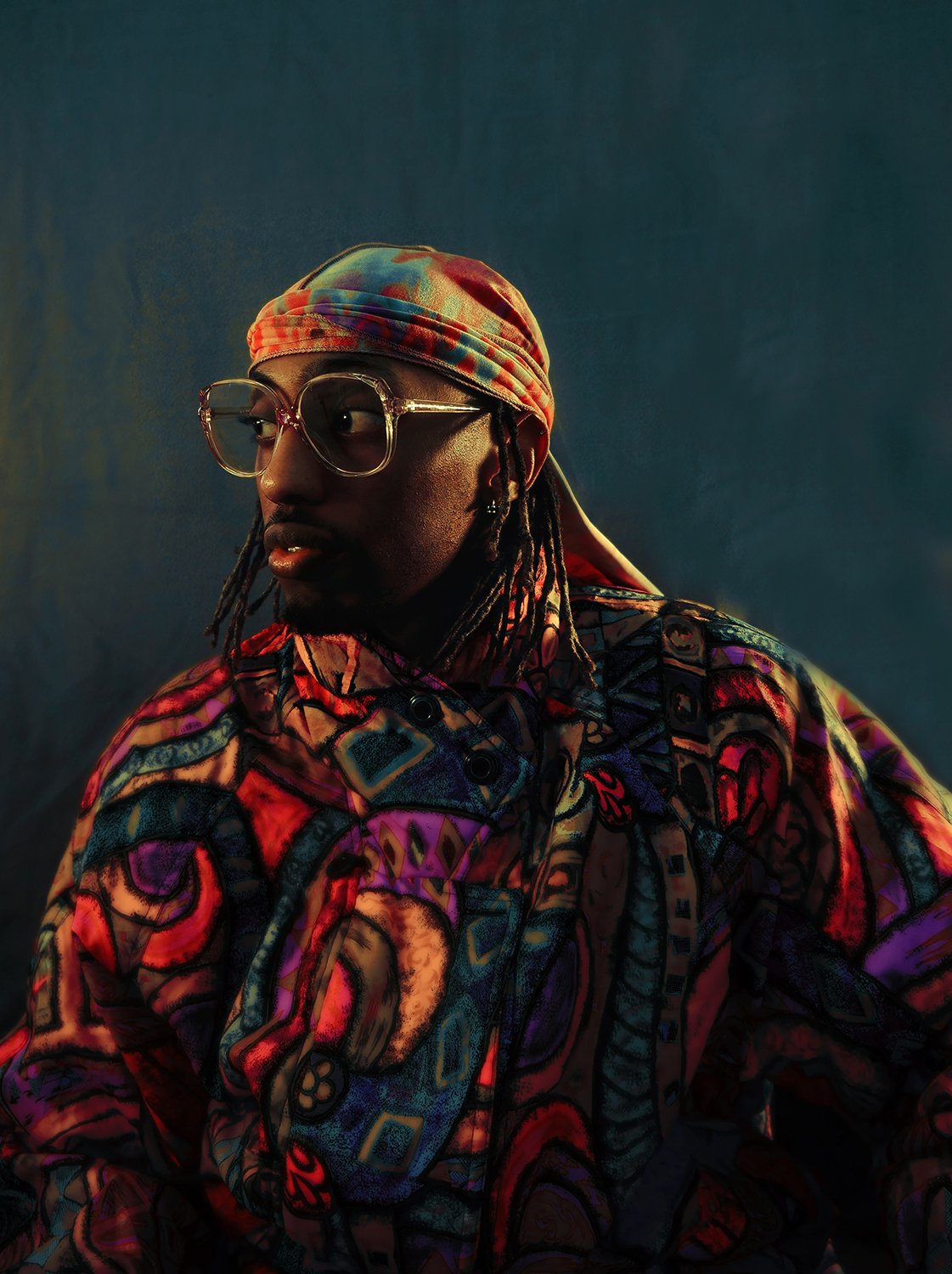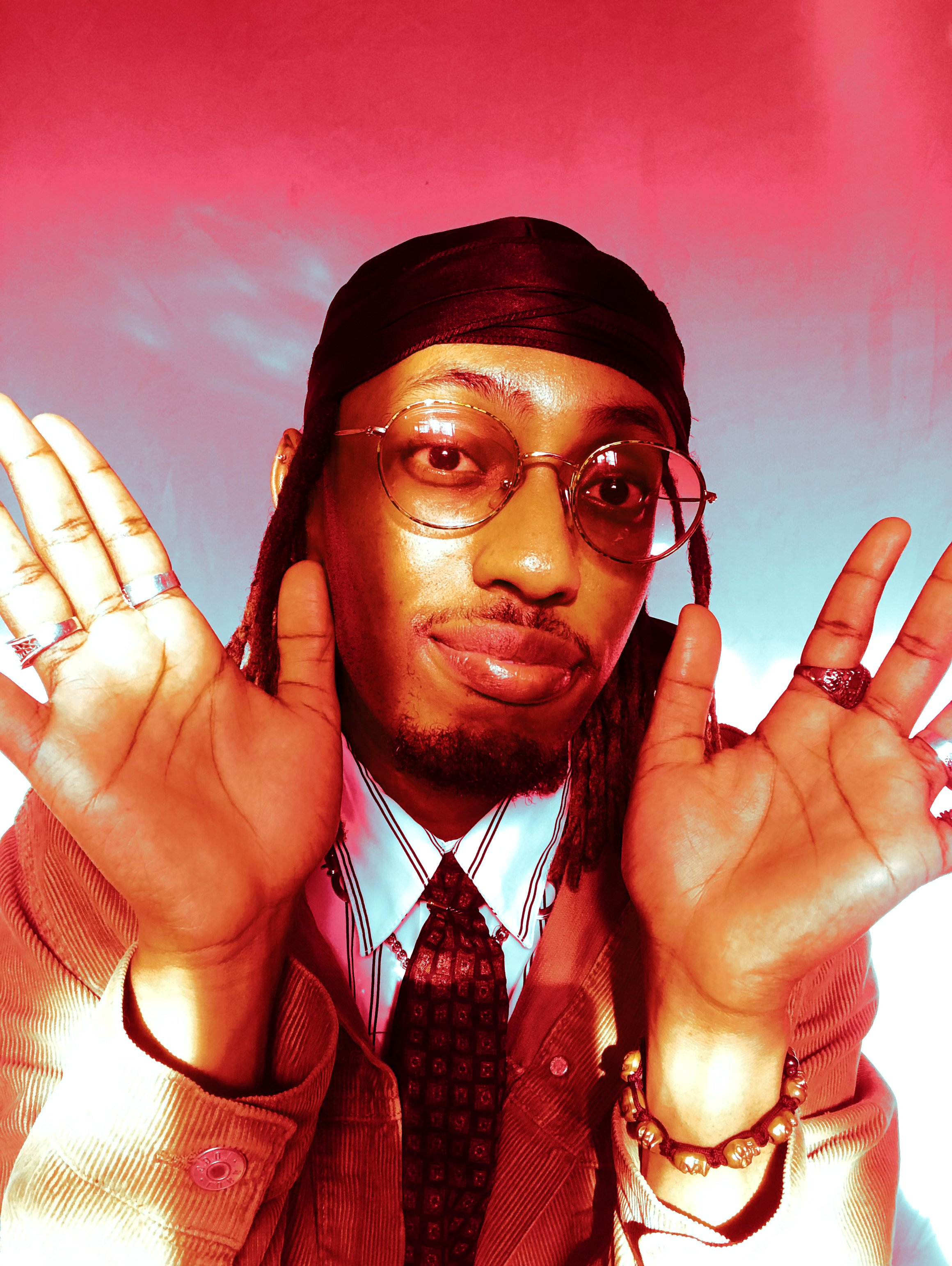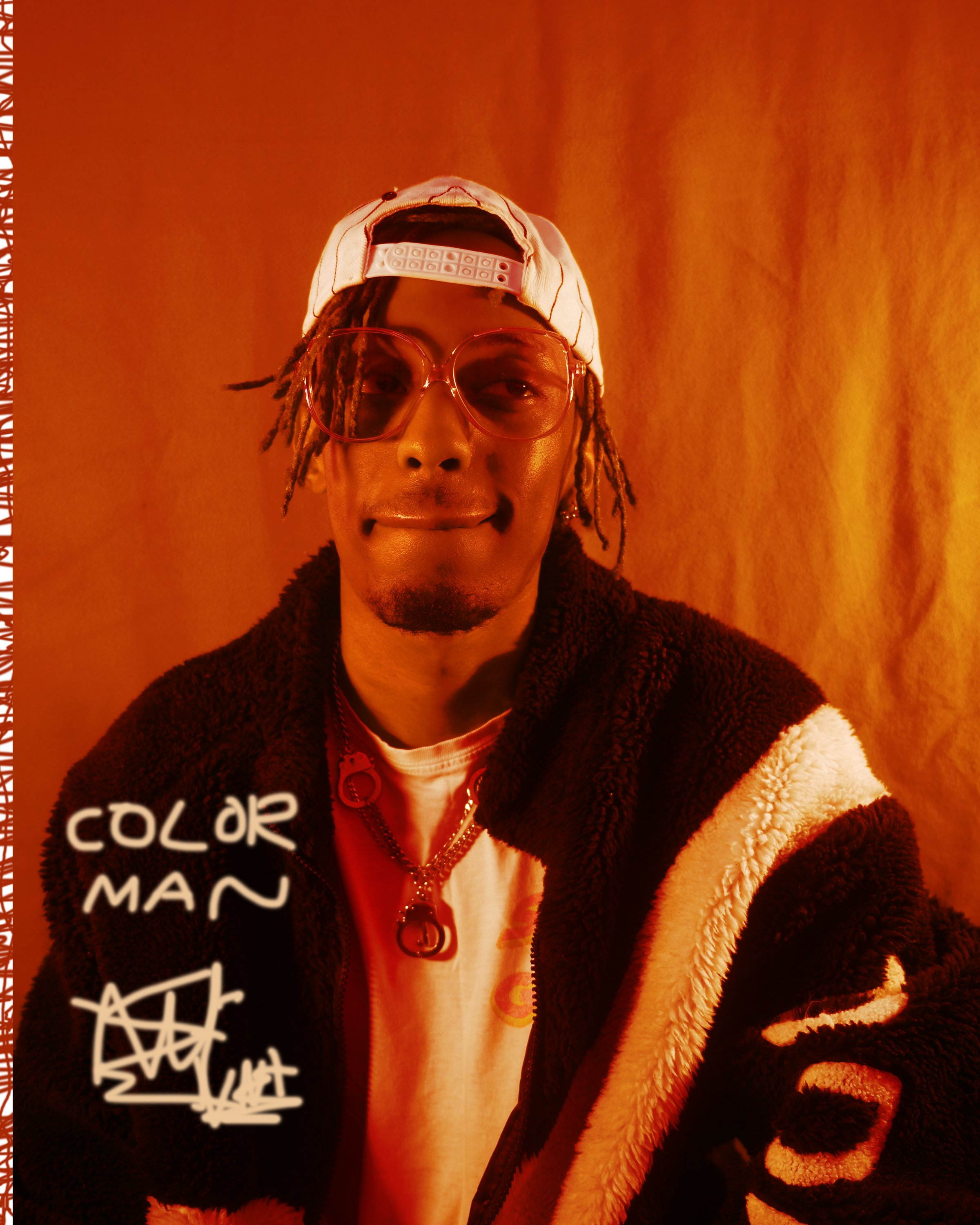The Color Man: Discovering Nu Fvnk’s Extraordinary Shades
To call Nu Fvnk an artist feels like an understatement. Creating seems to come easily to him, translating the layered nuances of human existence into as many art forms as you can imagine, strung together by a deep connection to colour. His latest project ‘Colour Man’, reveals different shades of a life dedicated to contemplating and expressing beauty, viewed through the realities of disappointment and victorious redemption. From the opening song, ‘Wake Up’, Color Man decisively calls the listener’s attention to the state of their reality, and their role in making a difference. Throughout, Nu Fvnk particularly speaks of his native Nairobi and the need to figuratively wake up despite the challenges faced. ‘Gangverment’ for instance, decries the negligence of government and leaders in worsening rather than building its citizenry’s state of life.
Sonically experimental and futuristic, the project is instantly arresting. Nu Fvnk expands the theme to East Africa through the formidable ‘East Bop’, a celebration of all things East Africa from the acclaimed Ethiopian food to the beauty of the various countries. This dance between strife and hope, beauty and pain in the African context is present throughout the album in relatable and demanding ways. True to his word, Nu Fvnk paints a vivid picture of our lives and generously shares it for all to have.
The project celebrates the journey Nu Fvnk has taken to get to this moment, and introduces us to a still reservoir of experience, hope and cultural celebration. Nu Fvnk may be known as part of the renown collective EA Wave, but as a solo act, he is compelling, diverse and relatable. His creative giftings are many. Notably, a strong, possibly synaesthetic ability to see music in colour enables him to see art in a unique way. We sat down with Nu Fvnk to hear his thoughts on releasing his album, creative influences, and following all his artistic ambitions.
Congratulations on releasing your album ‘Color Man’, how does it feel?
Thank you. It's strange because I finished it two years ago but was kind of overthinking the launch even though I loved the music. Eventually I just decided to do some fire artwork and put it out.
From the jump, the album is catchy and with themes of celebrating Africa and discussing the realities of the youth especially in Kenya. What were some of your inspirations?
I wanted to have a constant flavour in the project; be it through sound or lyric. My inspirations start with Nairobi then grow into Kenya, East Africa and Africa in general. I also always appreciate sprinkles of cultural themes so you’ll hear for instance a sample from the Samburu tribe.
Let’s start at the beginning. Where were you when you started working on the album?
I worked on it between August and December of 2020. This was during COVID times. I was pretty much by myself and was house-sitting a house that had a home studio. For the first time I had more stuff to play with. Literally (it felt like) I just started making songs and then I looked up and I had an album. For me, I was having fun being alone in quarantine because normally that’s just the kind of person I am anyway. I think I was about 70% done when I realised the songs had this cohesive vibe and decided to purposefully add some of the songs in. For instance with ‘Nairobi Attitude’, I wanted to make the type of song that we can call our city’s own song, and share with visitors, similar to other cities, for example ‘Empire State of Mind’ for New York.
Given some of the themes touching on leadership and justice, it’s surprising that you created the album in 2020 and not 2022 when Kenya has had the general elections.
It just shows you how much things don’t change and I feel like a song like Gangverment will still be relevant five years from now. I was watching how things were being handled around COVID, where we saw very outwardly issues like police brutality and corruption. I had this anger toward leadership because of that. It’s important to me because I live in it, it affects me and also I genuinely love being Kenyan and I love our people. We’re so innovative and if only people had the opportunity they’d create amazing things but we’re held back by this side of us. Without a private sector, I feel like we wouldn’t have anything and that just shows you how the government doesn’t do much.
‘Shoulders’ is beautiful; a suprising but welcome song given how personal it is given the general flow of the project.
‘Shoulders’ is a deep one for me. I needed to have an outro that said something about myself. The whole point of art is expressing yourself but I genuinely get joy from expressing ideas and concepts, and I rarely speak about myself. ‘Shoulders’ felt like the perfect opportunity to do that so that people get to know something personal about me.
What were your own beginnings as an artist?
In a sense, ‘Shoulders’ is inspired by this background. When I was a child, I had a stammer but whenever I would rap or sing, I did not stummer. This made me really connected to music since especially as a kid it felt like magic. I got really passionate about rap.
Initially, I just wanted to rap but I didn’t know anyone who could produce. I learnt how to produce so I could rap. Being a curious person, I learnt how to make beats. This was helped by my love for computers and software. I thought that I was learning to program different software to produce sound but it progressed to more. When it came to putting out music I realised I needed to learn other things like artwork. Then I realised I needed to mix the songs, then master them and eventually I got here by learning how to do all that. So this album is such a full circle moment for me because I started to produce just so I could rap but ended up learning so much about art out of necessity.
What were your influences as a young kid getting into rap?
Eminem was big for me when I was starting to rap. I connected with him personally because I felt his music expressed how I felt. As a kid you have so much to express but no one to express it to. He was also funny and created a kind of a character so watching his videos kind of felt like watching cartoons or a movie. Lil Wayne was also an influence. When it comes to producing, Pharell is my biggest influence. I think I’ve watched every beat video of Pharell, Swizz Beats and Timbaland. The 2000-2010s is my favourite era production-wise. I also listened to a lot of old music because my mum had a large collection of music from the 60s onwards. Eventually my taste expanded. One of my favourite genres currently is the old Somali disco music that they had before colonialism. My playlist feels like different colours-I really listen to everything.
Speaking of colours, what inspired the album name?
My friends gave me the nickname because of how much I love colour; from how I dress and all that. When it came to naming the album, beyond the nickname, colour for me is very big. It affects me emotionally and moodwise. I don’t know if it’s synaesthesia because I can’t confirm it. I translate sounds into colours to describe a mood. Sound for me translates into a colour index.
That’s incredible. Do you have a favourite colour, and can you give an example of a song and the colour it exudes?
For now, I would love to have more olive green in my life. But at some point it was pink - it depends on the mood. My song ‘Wake Up’ is turquoise blue. The Kenyan national anthem gives me a maroon-indigo vibe, it’s so majestic. I think we have the hardest national anthem in the world.
What does Nairobi mean to you?
Nairobi is home. Even if I find my success elsewhere, I will always come back home.
Your sound is very different- how do you describe it?
I’ve described it before as an influence of all genres but under hip hop drums. It could be anything, but what ties it together is hip hop drums.
What are your future plans?
I’m passionate about a lot, from design to short films. I also want to make furniture. For me creativity is a language that I can translate into different things once I put in enough effort. There’s no major plan than to do better in my art.
What’s been your most fulfilling experience so far and your biggest dream for your art?
For me, the butterfly effect that music has had in my life is crazy. The things that it led me to, the people that I met. I had to fight to do this, and the thought of missing out had I chosen something else is crazy. In terms of dreams, I’d love to score a movie.







